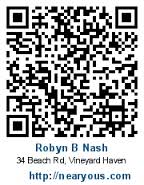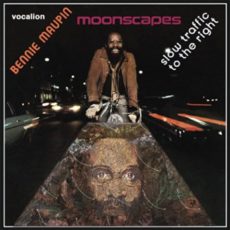
Daily Dose Of Jazz…
Bennie Maupin was born August 29, 1940 in Detroit, Michigan. He started playing tenor saxophone in high school and attended the Detroit Institute for Musical Arts, while playing locally. He moved to New York in 1963, freelancing with many groups, including ones led by Marion Brown and Pharoah Sanders.
Well known for his playing as a part of Herbie Hancock’s Mwandishi sextet and Headhunters band and for performing on Miles Davis’s seminal fusion record, Bitches Brew. Maupin has collaborated with Horace Silver, Roy Haynes, Woody Shaw, Lee Morgan and many others. He has also performed on several Meat Beat Manifesto albums.
Noted for having a harmonically-advanced, “out” improvisation style, while having a different sense of melodic direction than other “out” jazz musicians such as Eric Dolphy.
Maupin was also a member of Almanac, a group with bassist Cecil McBee, pianist Mike Nock and drummer Eddie Marshall. He has recorded a half dozen albums as a leader and another three dozen as a sideman with John Beasley, Marion Brown, Mike Clark, Miles Davis, Jack DeJohnette, Eddie Henderson, Andrew Hill, Darek Oles, Lonnie Smith, McCoy Tyner, Lenny White, Patrick Gleeson and Jim Lang.
Multireedist Bennie Maupin, who plays various saxophones, flute and bass clarinet, failed to catch on as a bandleader, thus maintained a low profile during the past 15 years, until emerging in 2006 with the critically acclaimed Penumbra followed two years later Early Reflections on the Cryptogramophone label, then on Vocalion with Slow Traffic To The Left, Moonscapes. He continues to perform and tour.
Sponsored By
![]()
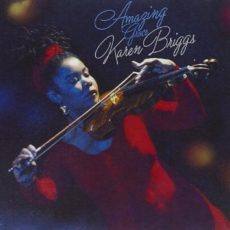
Daily Dose Of Jazz…
Karen Briggs was born August 12, 1963 in Harlem, Manhattan, New York City to a family of musicians, father played trumpet, grandfather played saxophone and piano, and other family members were vocalists. It was when the family moved to Portsmouth, Virginia that she took up the violin at age 12, with a talent for playing by ear.
Briggs was the head of her class orchestra as a teenager and performed at a competition at Woodrow Wilson High School. Playing alongside her father and his colleagues, at their encouragement at age fifteen she committed to become a professional jazz violinist. After graduating high school in 1981, she became the first member of her family to attend college, going to Norfolk State College, and majoring in music education and mass media studies.
In 1983, while still in college Karen began performing at the Virginia Symphony Orchestra but finding classical music restricting she left after four years. Returning to New York in 1987 she sought out jazz, won several amateur night competitions at the Apollo Theater, then the following year married and moved to Los Angeles, California, where she became a frequent performer at the jazz club Marla’s Memory Lane. Briggs’ first professional tour was with the 100 piece ensemble group Soul II Soul, touring the United States and Japan in 1989. She then auditioned for Yanni, secured a place in his upcoming tour by playing over a performance of his piece Within Attraction. Linda Evans, then in a relationship with Yanni, pushed for Briggs to be a featured soloist in Yanni’s Live at the Acropolis tour. Briggs’ performances during the tour gained her broad recognition and the moniker “Lady in Red” and ultmaely toured with Yanni for thirteen years.
Post Yanni, Karen joined Stanley Clarke, Lenny White, Richie Kotzen, and Rachel Z forming the short-lived jazz fusion group Vertú and recording only one album. She released her debut album Karen in 1992 followed by her sophomore project Amazing Grace in ‘96 and Soulchestral Groove in 2009. She currently holds residency in the Lao Tizer Jazz Quartet and also performs with the all-women group Jazz in Pink.
Violinist Karen Briggs, also known as the Lady in Red, has recorded three albums as a leader and continues to perform, tour, record and collaborate with artists outside the jazz spectrum, such as Dave Grusin, Diana Ross, Wu Tang Clan, En Vogue and Chaka Khan.
![]()
More Posts: violin
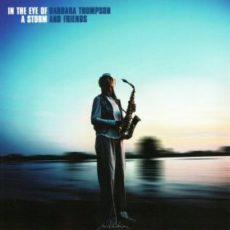
Daily Dose Of Jazz…
Barbara Gracey Thompson was born on July 27, 1944 in Oxford, United Kingdom. She studied clarinet, flute, piano and classical composition at the Royal College of Music, but it was the music of Duke Ellington and John Coltrane that caused her to shift her interests to jazz and saxophone.
Around 1970, Thompson she joined Neil Ardley’s New Jazz Orchestra and appeared on albums by Colosseum. Starting in 1975, she was a founding member of three bands, the first being the United Jazz and Rock Ensemble, with bandleaders Wolfgang Dauner, Volker Kriegel, Albert Mangelsdorff, Eberhard Weber, Ian Carr, Charlie Mariano, Ack van Rooyen and Jon Hiseman. The second was Barbara Thompson’s Jubiaba, a 9 piece Latin/rock band with Peter Lemer, Roy Babbington, Henry Lowther, Ian Hamer, Derek Wadsworth, Trevor Tomkins, Bill Le Sage and Glyn Thomas. The third, Barbara Thompson’s Paraphernalia, is her current working band with pianist Peter Lemer, vocalist Billy Thompson, bassist Dave Ball and Jon Hiseman on drums.
She was awarded the MBE in 1996 for services to music but due to her being diagnosed with Parkinson’s disease in 1997, she retired as an active saxophonist in 2001 with a farewell tour. Barbara went on to work exclusively as a composer exclusively, but returned to the stage in 2003 replacing the unwell Dick Heckstall-Smith during Colosseum’s “Tomorrow’s Blues” tour becoming a permanent member, and in 2005 she performed live with Paraphernalia in their “Never Say Goodbye” tour.
Thompson has worked with Andrew Lloyd Webber on musicals such as Cats, Starlight Express and Requiem. She has written several classical compositions, music for film and television, a musical of her own and has composed songs for her big band Moving Parts.
Sponsored By
www.whatissuitetabu.com
![]()
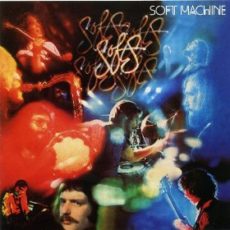
Daily Dose Of Jazz…
Roy Babbington was born July 8, 1940 in Kempston, Bedfordshire, England. He started his musical career in 1958, playing double bass in local jazz bands and at the age of 17 he took up the post of double bass, doubling on electric guitar with The Leslie Thorp Orchestra at the Aberdeen Beach Ballroom. While there he honed his sight reading skills and after a move to London in 1969, he joined the band Delivery, one of the side roots of the Canterbury scene with Phil Miller, Pip Pyle and Lol Coxhill.
Babbington began to work as a session musician with jazz/fusion musicians like Michael Gibbs and The Keith Tippett Group with Elton Dean. He was part of the recording session on their album Dedicated To You But You Weren’t Listening in 1970, Tippett’s big band project Centipede in ‘71 and Dean’s album Just Us. Post Delivery in 1971 after Carol Grimes’ album Fools Meeting, he joined the group Nucleus.
He would go on to perform and record with Alexis Korner, Harvey Andrews, Mike d’Abo, Chris Spedding and as a part time member of the bands Schunge, Solid Gold Cadillac, Ovary Lodge and Soft Machine. Remaining active on the UK jazz scene he played with Barbara Thompson’s Paraphernalia, Intercontinental Express, various bands led by pianist Stan Tracey and sat in on the album session Welcome to the Cruise by Judie Tzuke.
By the 1980s and 90s, Roy returned to his roots playing the double bass and pure jazz, so much, he became affectionately known by the musical community as the Jazz Handbrake. He also worked with Elvis Costello, Carol Grimes, Mose Allison and the BBC Big Band. Since 2008, bassist Roy Babbington, who has played big band and fusion jazz, continues to perform with Soft Machine Legacy, replacing Hugh Hopper as their electric bassist in 2009.
Sponsored By
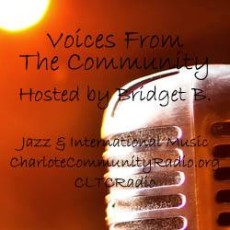
Voices From The Community
![]()
More Posts: bass

Daily Dose Of Jazz…
Jorge Dalto was born on July 7, 1948 in Roque Pérez, Argentina. During the mid-80s Jorge led the InterAmerican Band featuring his wife, Adela, on vocals. He continued to build his internationally-flavored sound, and collaborations with his wife blended their Latin and Brazilian backgrounds. He served as arranger for the Percussion Jazz Ensemble with Tito Puente, Carlos “Patato” Valdes and Alfredo De La Fe.
As a leader he recorded six albums since his debut recording Chevere in 1976 and another dozen as a sideman performing and recording with Tito Puente, Grover Washington, Fuse One, Spyro Gyra, George Benson, Dizzy Gillespie and Machito, Grant Green, Heaven and Earth, Willie Colón, Gato Barbieri, Bernard Purdie, Ronnie Foster, Tom Malone, Jerry Dodgion, Ernie Royal, Victor Paz, Rubén Blades, David Sanborn, Eric Gale, Steve Gadd, Bob Mintzer, Alan Rubin, Dave Valentin, Jay Beckenstein, Carlos Valdes, Buddy Williams, Stanley Banks, Phil Upchurch, Hubert Laws, Michael Brecker, Randy Brecker, Anthony Jackson, Harvey Mason and Frank Malabé.
Pop, jazz and Afro-Cuban pianist and former George Benson musical director Jorge Dalto passed away of cancer at the age of 39 on October 27, 1987.
![]()
More Posts: piano


